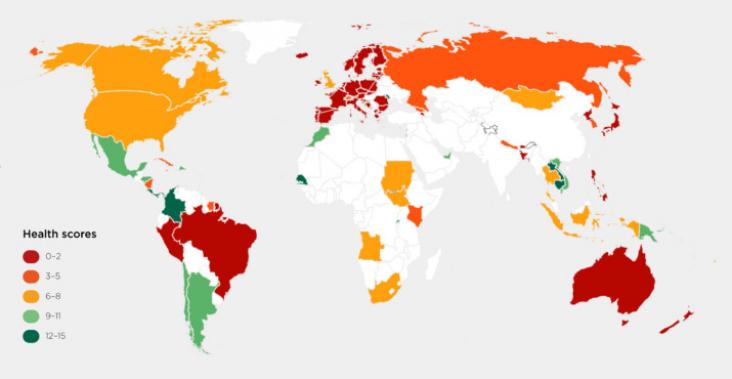An article, in the context of SDG 3, analysing the risk of Alzheimer's disease and other dementias across a range of hospital-treated bacterial and viral infections in two large cohorts.

Human health is irrevocably linked to the health of our planet. Failure to address the root causes of climate change will lead to exponential human and ecological harm.
Background: Africa is undergoing both an environmental and an epidemiological transition.
Background: Natural outdoor environments including green spaces play an important role in preserving population health and wellbeing in cities, but the number of deaths that could be prevented by incr
Background: Many states in the United States (US) have introduced barriers to impede voting among individuals from socio-economically disadvantaged groups.
Both short-term and chronic exposure to fine particulate matter air pollution (PM2.5) are known to cause a host of adverse health outcomes, including premature death. This paper will review sources, health impacts and health inequities associated with PM2.5, and will frame PM2.5 as both a social and structural determinant of health.
This Article supports SDGs 3 and 10 by showing substantial differences in the age-standardised mortality rate due to police violence over time and by racial and ethnic groups within the USA.
This Viewpoint supports SDGs 3 and 10 by discussing how common practices in academic global health are peppered with epistemic wrongs that lead to or exacerbate epistemic injustice; for example, members of the global heath community often witness a cycle in which researchers assume that locals in marginalised areas and members of marginalised groups do not have the capacity to contribute to research, and thereby bypass such people's participation.
This Article supports SDGs 3 and 10, assessing whether people ageing with HIV have more drug-drug interactions than those without HIV, and whether this confers greater risk of hospitalisation.
